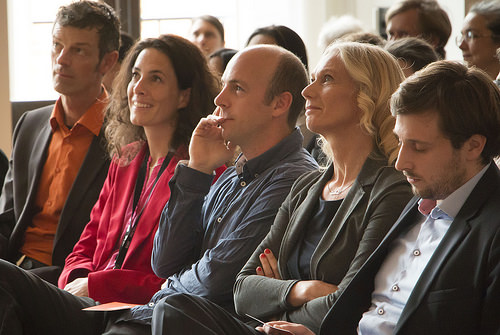It’s your worst nightmare. During jury selection, you’ve only got a single peremptory challenge remaining and you’re face-to-face with a nightmare, tort reform juror on the panel. The tort reform, pro-defendant juror admits that he socializes and has dinner with the defendant, but when questioned by the trial judge, he solemnly swears he can be “fair and impartial”. The trial judge nods his head and denies your challenge for cause.
During jury selection, trial judges ask prospective jurors whether they can be “fair and impartial”, listen to the evidence and set aside their pre-conceived biases in favor of the defendant (or against the plaintiff). But should the litmus test be whether the prospective jurors can be “fair and impartial”?
The Statutory Litmus Test for an Acceptable Juror
Under New York’s CPLR section 4105, “Persons who constitute jury”, the jury should consist of, “The first six persons who appear as their names are drawn and called, and are approved as indifferent between the parties….” (Emphasis Added). According to the Merriam-Webster Dictionary, “indifferent implies neutrality of attitude from lack of inclination, preference, or prejudice”.
The critical question for a prospective juror is not, “Can you be fair and impartial?” or “Can you set aside your feelings and base your verdict only on the evidence?” If a juror admits that he/she is leaning toward the defense, she is not “indifferent between the parties”, as required by CPLR section 4105, and should be excused by a challenge for cause.
Eliminating Bad Jurors with 4 Questions
First, get the pro-defendant juror to admit that she has a leaning or pre-judgment in favor of the defendant will a closed-end question:
1. “It’s fair to say you have a leaning in favor of the defendant, is that right?”
Nod your head as you ask this question. Jurors will mimic your non-verbal communication, i.e., if you nod your head, they will too (just as they will smile when you smile at them). Once the pro-defendant juror admits to a leaning or pre-judgment, you have to reinforce the strength of her conviction with 3 simple questions:
2. “It’s fair to say you’ve held these convictions for a long time and they’re not likely to change over the course of this trial, is that right?
3. “No matter what the defense lawyer tells you, your convictions aren’t likely to change, fair to say?”
4. “When you hear the witnesses and listen to the instructions of the law from the Judge, you’ll still have this strong conviction, is that what I’m hearing you say?”
Bingo! With 3 simple questions, you just destroyed the questions that will be posed by the defense lawyer and trial judge to rehabilitate the prospective juror. This pro-defense witness has strongly held convictions in favor of the defense that won’t change, even after he hears the evidence and instructions of law. The trial judge almost has to remove this pro-defense juror for cause!
Never use the words, “bias” or “fair and impartial” during jury selection. Few prospective jurors will admit to being biased or unwilling to set aside their convictions to be “fair and impartial”—it makes them as if they are racists or at least that they are a big Weenie.
The Ace Up Your Sleeve
Let’s say the trial judge is still hemming and hawing even after you confirm the prospective juror’s leaning and prejudgment and isn’t quite sure whether the pro-defendant juror should be removed for cause during jury selection. Gently remind the trial judge that CPLR section 4105 requires that jurors be “indifferent between the parties”.
Remind the trial judge that “indifferent between the parties” defines when a prospective juror should be removed for cause. And remind the Judge that the prospective juror admitted that:
- She has a strongly held leaning or prejudgment in favor of the defense,
- The leaning or prejudgment is a strongly held conviction that is not likely to change over the course of the trial, and
- Even after hearing the witnesses and listening to the Court’s instructions of the law, she will still have this strongly held leaning or prejudgment.
If the trial judge refuses to grant your challenge for cause, MAKE A RECORD. Ask for a court reporter and state on the record that the prospective juror admitted to a leaning or prejudgment in favor of the defense and that this bias is unlikely to change during the course of the trial. Then state on the record that the prospective juror does not meet the statutory criteria for an acceptable juror, under CPLR section 4105.
photo credit: Preisverleihung Jugenddokumentarfilmwettbewerb via photopin (license)
